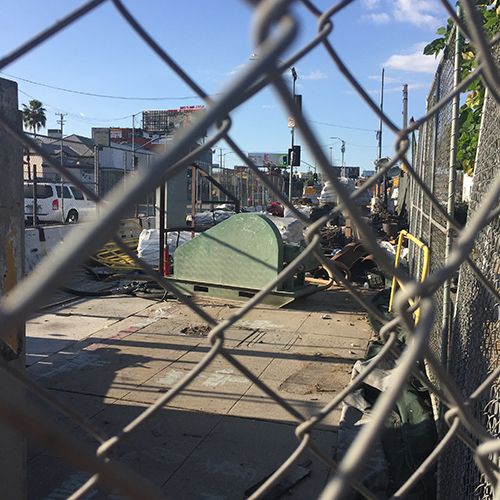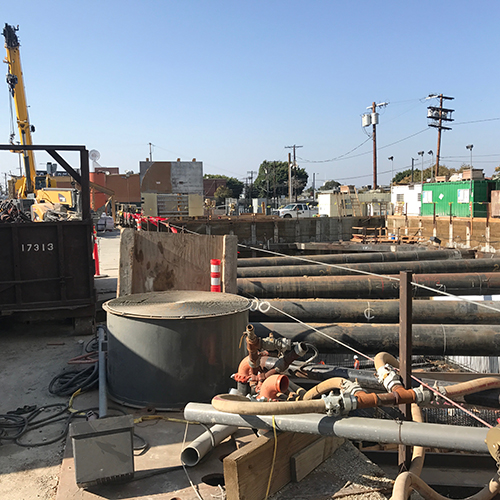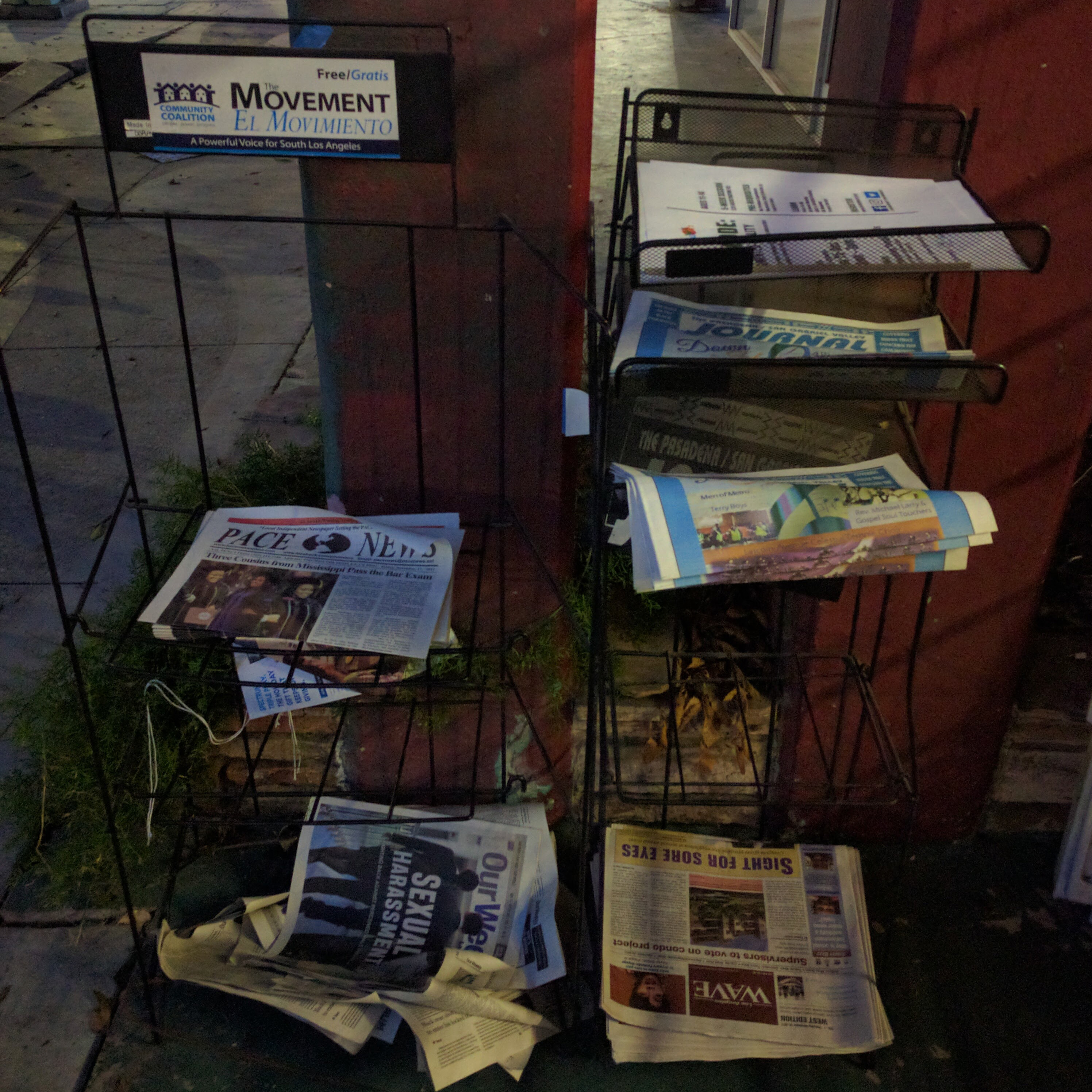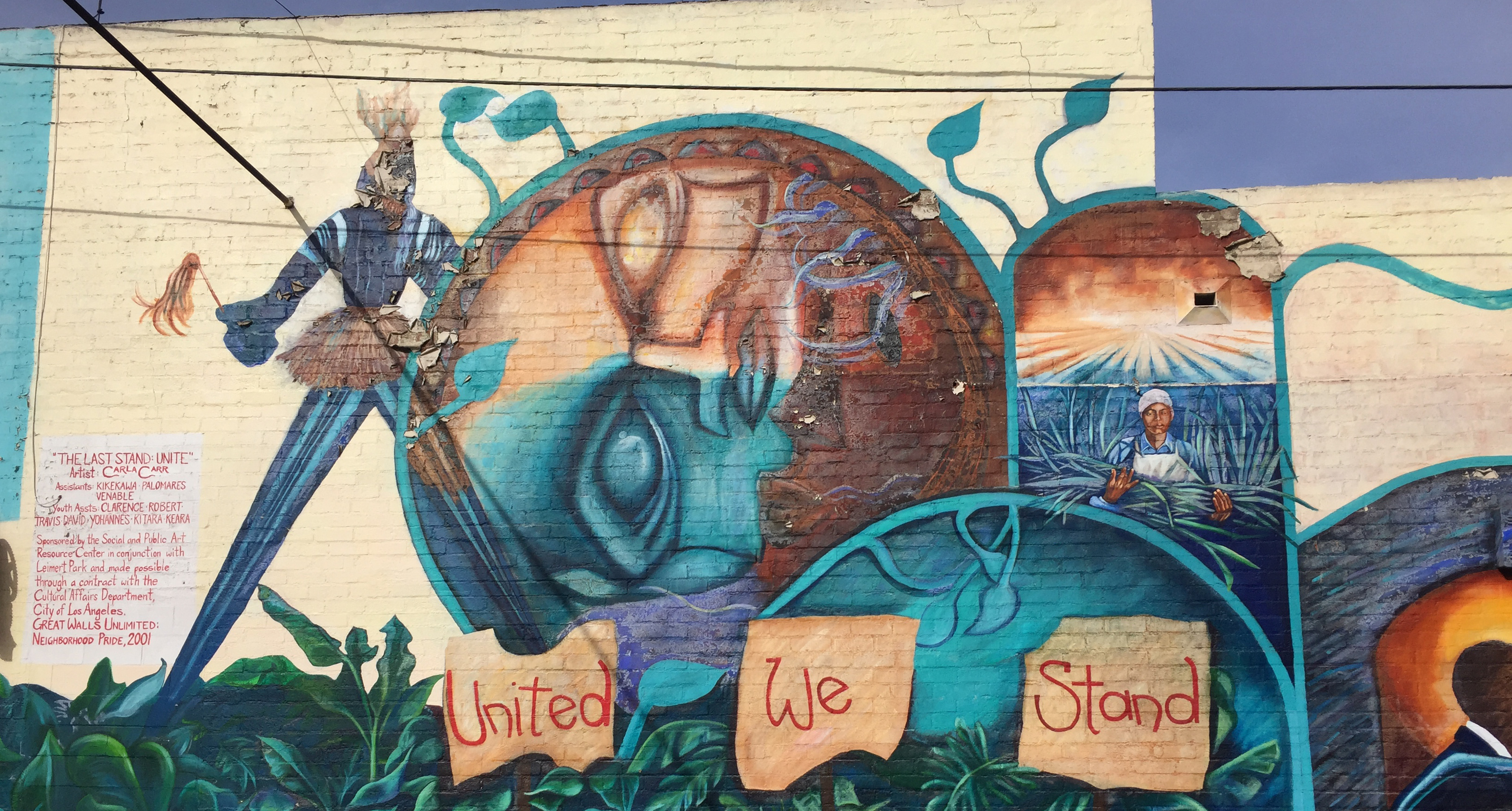
Black-owned businesses complement the history and culture of Leimert Park
New and old business owners come to the community for similar reasons
Anthony Jolly and his business partner plan to open up Hot and Cool Café on Degnan Blvd. just north of Leimert Park. This location choice was no accident for Mr. Jolly, who specializes in coffee.
“I think it’s good for the younger generation to actually see that you can collaborate and you can own small businesses and you don’t have to aspire into music or sports so we set ourselves here to be that living example so to speak,” Jolly said, speaking of a young generation of African Americans.
Leimert Park’s business district is stacked wall-to-wall with intricate shops, each specializing in unique disciplines. The shops are almost all black-owned businesses and have been for several years. The history of African-Americans in Leimert Park can be traced back to the 1950’s. A KCET report on Leimert Park sites a United States Supreme Court ruling that delegitimized “racially restrictive covenants” as the main reason for African American movement to areas like Leimert Park.
With this mass migration of African Americans came a major movement in culture as well. Many of the small businesses that currently exist in Leimert Park are relics of that same culture that moved to the area more than 60 years ago.
“It became this enclave of art. So you have several art galleries here… and when 5th Street Dick’s coffee shop was here and like jazz was blasting all day and all night… so we had a lot of things that fostered the arts. I think that’s what we’re trying to get back here is that vibe,” said Adé Neff, the co-owner Ride On!, a local bike shop.
Two Leimert clothing companies appeal to the youth
Vincent Singleton a local barber at New Millennium Barber Shop thinks the diverse culture of the residents of Leimert Park is what produces the unique business landscape.
“It’s rich in a lot of hip hop culture, a lot of religious culture with Christianity, Muslims from Islam, a lot of Black Israelites, and Crenshaw high school is right down the street,” said Singleton.
Singleton also believes the exposure that the community has received in popular culture has contributed to the success of their businesses. A few notable figures from Leimert Park include Ray Charles, Tom Bradley, former Mayor of Los Angeles, and rapper Dom Kennedy. Insecure, a new HBO Series, shoots at several locations in Leimert Park. Additionally, many scenes of the 1991 film Boyz in the Hood were shot in neighborhoods surrounding Leimert.
“Its been shown all over the world through movies, a lot of cats like yourself write about it, you’ve seen it a lot on television, you know its all on the internet and all that other type of stuff,” he went on.
Singleton attributes the success of the many salons in Leimert to the traditions of African Americans and specifically the treatment of black hair.
“We wear our crown up top. Guys and girls really love to look good,” stated Singleton.
The culture and commerce overlap is never more tangible than on Sunday mornings when Leimert hosts a Farmer’s Market in the park. While local distributers sell arts and crafts, foods, and other goods, horns blare from musicians in a way that emulates the environment that Neff described of 1950’s Leimert Park. Yet, some feel this way of life is not guaranteed in future years.
“The conversation around Leimert Park and around the whole country right now is this whole thing of gentrification and what that means. There’s a lot of white folks that are in the area now either buying up property or moving in the area… small businesses are concerned whether or not the small businesses will be able to survive and particularly the small black businesses will be able to survive,” explained Neff.
The gentrification Neff is referring to is mainly associated with the impending Metro line that will be stopping in Leimert Park.
Nawili Griffin, a local hair braider and yoga instructor, anticipated the change.
“I’m conscious of it not scared. I think everything has to change. So, I’m just looking at the history in the park and I knew there was going to come a day where there was going to be a shift,” said Griffin.
There is still hope in the community that the black-owned businesses can survive and thrive even with an increase in the popularity of Leimert Park. Much of this hope is inspired by the fact that African Americans who cherish this culture own many buildings in the commercial district.
Hakim Dolphin owns Brooklyn Deli, a small sandwich shop on Crenshaw Blvd. Dolphin is aware that gentrification is a fear for Leimert Park residents but said that businesses owners such as himself need not worry.
“A lot of the actual buildings are black-owned in addition to the businesses. So, like, we don’t own the building but the building is black-owned. This building is black-owned, that building across the street is… so its still going to kinda become a black-owned area,” noted Dolphin, taking a break from preparing a sandwich behind the counter.
Denice Davidson, a recipient of Griffin’s hair braiding, agrees that this type of gentrification will be good for the black-owned businesses.
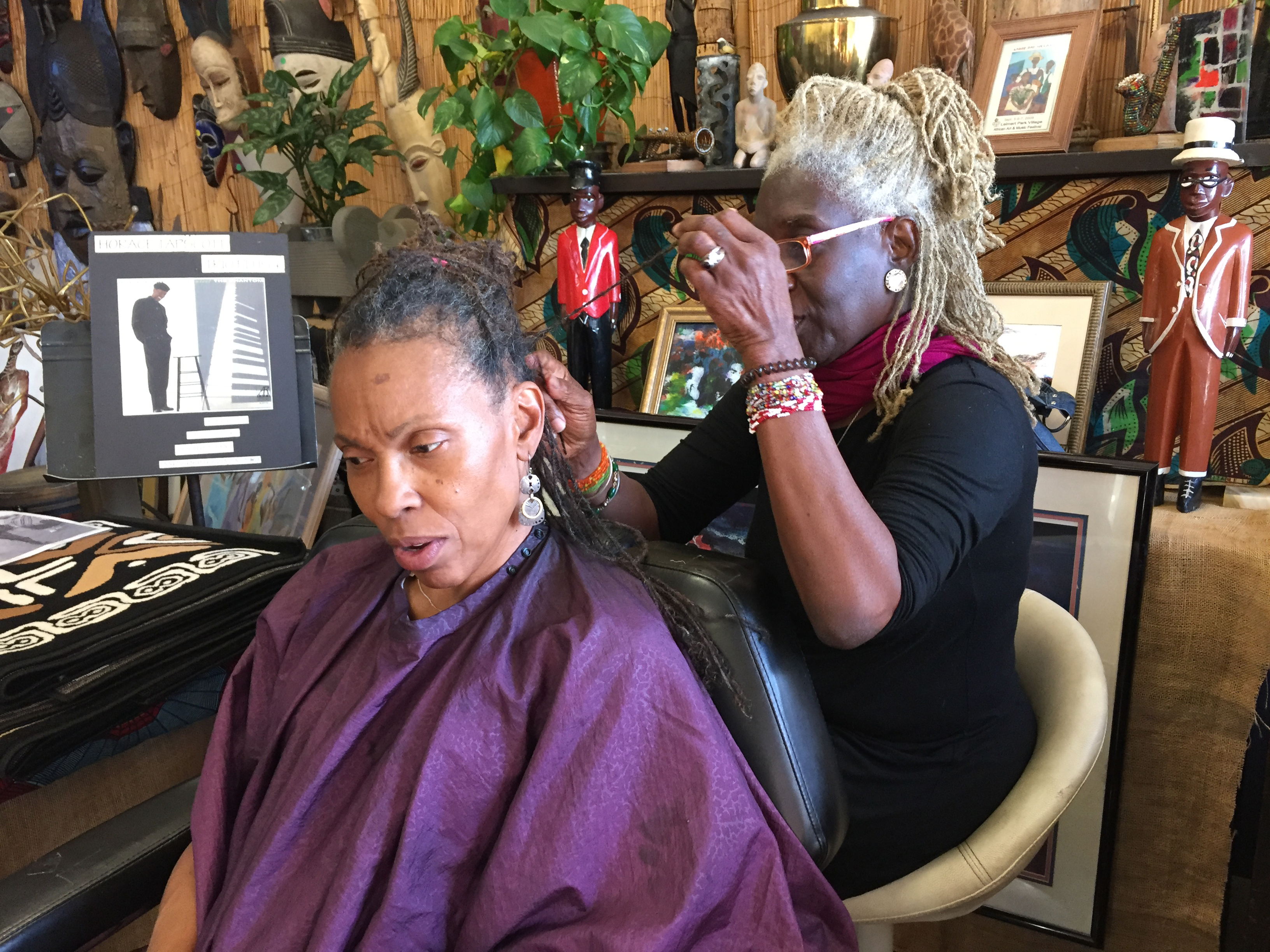
“There’s always a shift. We’re looking at it being for the good so it can be sustainable because this should be a stop that tour busses come and that doesn’t happen,” said Davidson.
Leimert Park’s famed culture and essence are substantiated by a business landscape that represents the enlivened people of Leimert. Leimert Park’s black-owned businesses are representative of the customers they sell their goods and services to on a daily basis.
